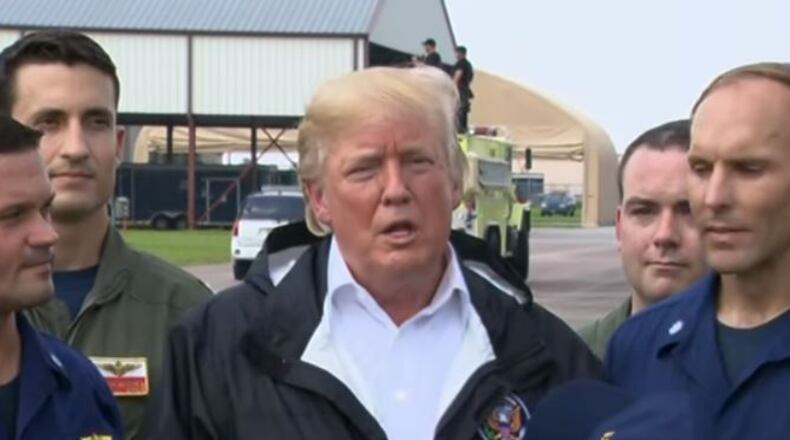"I am," the President said during a Saturday stop in Houston. "It is very much on my mind."
The free trade deal between the U.S. and South Korea was approved by Congress during the Obama Administration - it ensured that 95 percent of tariffs on consumer and industrial products were done away with by 2016, with all other tariffs to be removed by 2021.
When talks began during the Bush Administration on a deal, the idea was that a trade agreement could further bolster ties between the U.S. and South Korea - presenting a more united front to the Pyongyang regime in the North.
Critics though say because the trade deficit with South Korea has increased since the agreement, it shows that the U.S. did not win enough trade concessions, which dovetails with Mr. Trump's contention that it is bad policy for American workers and companies.
The President's trade threat drew an immediate rebuke from Sen. Ben Sasse (R-NE).
"The President and Nebraska have a basic disagreement about trade," Sasse said in a written statement.
"His Administration holds 18th-century views of trade as a zero-sum game," Sasse added. "I side with our farmers and ranchers who are feeding the world now."
As for the idea of ending the trade pact, a number of foreign policy experts quickly panned the idea, with news of the possible trade tiff with South Korea coming amid lingering tensions with North Korea, which has made more and more noise in recent days again about its nuclear weapons program.
"Pulling out of US-S. Korea trade pact a truly bad idea," said foreign policy expert Richard Haass, who argued it would weaken the U.S. alliance with South Korea at a crucial time.
On Saturday, North Korean state media claimed that Kim Jong Un had personally inspected a hydrogen bomb being loaded onto a long range missile.
While Mr. Trump has made changing trade agreements central to his plans in the Oval Office, such talk has faced criticism not only from agriculture, but also general business interests, as the U.S. Chamber of Commerce and other groups have urged the President not to terminate agreements with Korea, or the NAFTA trade deal with Canada and Mexico.
"We need to open markets abroad in order to support our businesses and create jobs here at home," the Chamber argued in a public campaign rolled out earlier this summer.
But for Mr. Trump - and a lot of his supporters - the issue is one of fairness, as critics of the Korean trade deal believe that South Korea gets the edge on U.S. workers and industries.
The President could trigger a six month withdrawal from the pact, which would then likely bring about higher tariffs from both countries on certain products, making those more expensive, and less able to compete in the marketplace.
On Sunday morning, Mr. Trump used Twitter to send messages not only to Pyongyang - but also Seoul and Beijing - about the latest North Korean nuclear test.
About the Author
